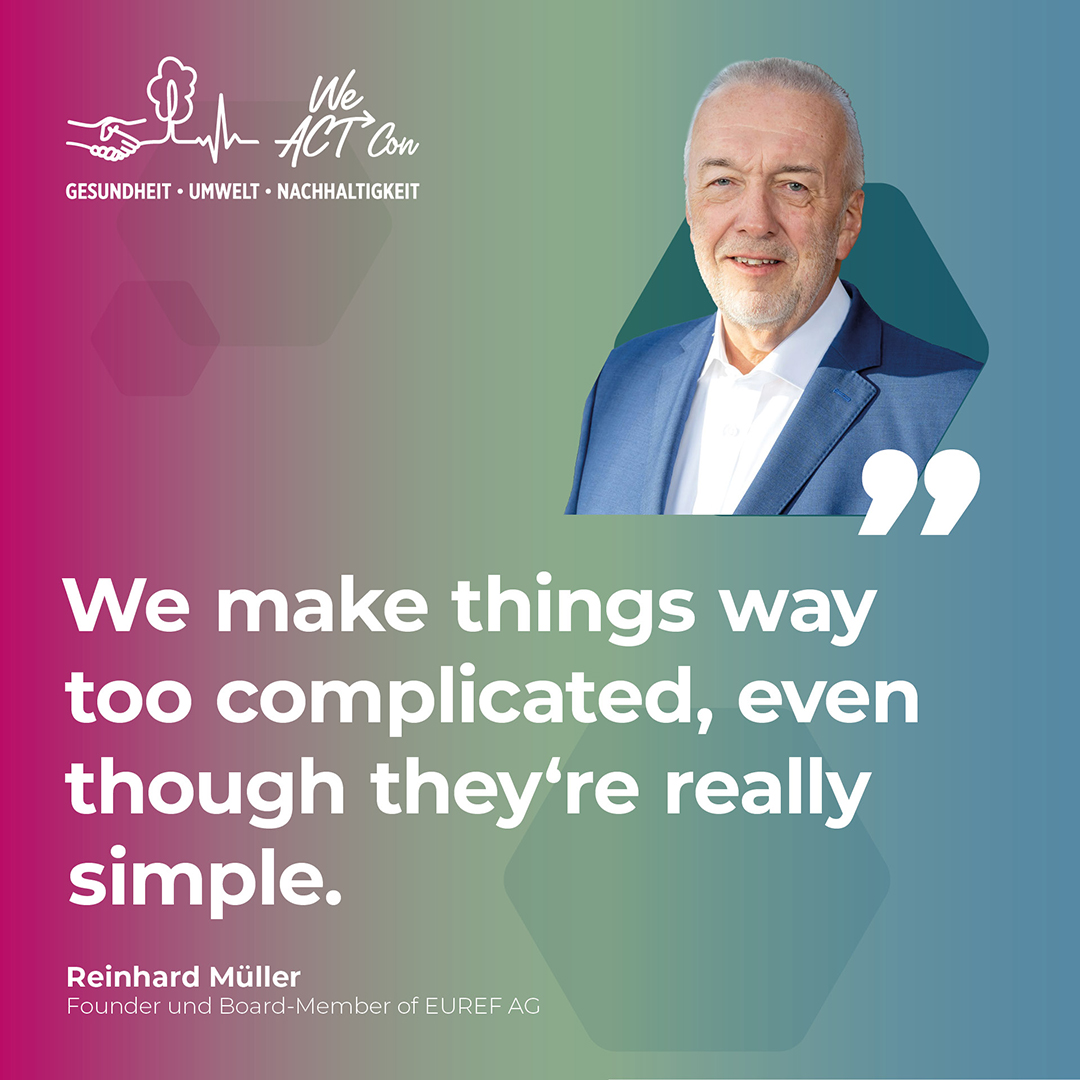
Interview with Reinhard Müller
"We make things far too complicated, even though they are very simple"
In 2008, architect and entrepreneur Reinhard Müller acquired the site around the decommissioned gasometer, and since 2010 he has been developing the EUREF-Campus into a model district for the climate-neutral, resource-conserving and intelligent city of tomorrow. Today, around 7,000 people are working on the energy and mobility transition at the site in a central Berlin location. We talk about the limits of what is feasible and how to overcome them.
Interview: WeACT Con
1
What limits did you have to overcome when building the EUREF-Campus?
Reinhard Müller: When I started developing the EUREF-Campus in 2010, I was always worried that everyone would copy me at some point. After all, I didn't invent anything new: I just applied things that already existed. And they were already economically viable at the time. We never applied for or received funding, but we still earn money with our project. Nobody has imitated us in this form or copied the EUREF-Campus! Strange, really.
And yes, of course we also had to overcome resistance. There were challenges around monument protection, but also concerns in the neighborhood. I presented our idea to numerous representatives from Berlin's business, academic and political communities over the years. They all said that I would make a mess of the project. These are the same people who now say that I bought the property too cheaply back then. Typical Berlin!
2
How did you manage to overcome these boundaries?
You need a strong will, a certain stubbornness and assertiveness - and the financial means. My wife asked me at the time: Why are you doing this to yourself? My answer is clear: renewable energy is our economic future and enables us to become independent of the high energy costs in Germany. Unfortunately, politics is very far removed from what is already possible today and from what would be easy to implement. The energy transition mainly takes place on paper and in speeches.
3
What needs to happen so that we as a society can break down barriers to sustainable development?
We make things far too complicated, even though they are quite simple. We get them from nature. Take heat pumps, for example: can you explain a heat pump to me? Do you have a bicycle? When you inflate the bike, what happens to the valve? It gets warm. Because you compress air, that's the trick and that's how a heat pump works: you turn one unit of green electrical energy into about four units of green thermal energy. But we make such a big fuss about it that the average consumer has doubts. But there should be no discussion at all. I can only advise everyone to use heat pumps, simply because of the CO2pricing that will take effect from January 1, 2027. To be honest, I don't know what people are waiting for.
For me, the discussion about the energy transition is otherwise too focused on CO2emissions. I am skeptical that we in Germany, with around one percent of the world's population, can have a decisive influence on global climate targets. But we can be pioneers; the energy transition could become a German export hit. English-speaking Chinese people talk about the "German Energiewende". It's like "kindergarten", a German word that has been incorporated into the English language.
Politicians and the public media must explain to the population in simple terms what the roadmap is and how it could work. According to the "Sendung mit der Maus" principle - and at prime time. We have to explain that it is also economically worthwhile. People in Germany only really wake up when it comes to their wallets.
Reinhard Müller is the founder of the EUREF Campus and today a member of the EUREF AG Management Board
Foto: ©EUREF-AG_Christian-Kruppa
